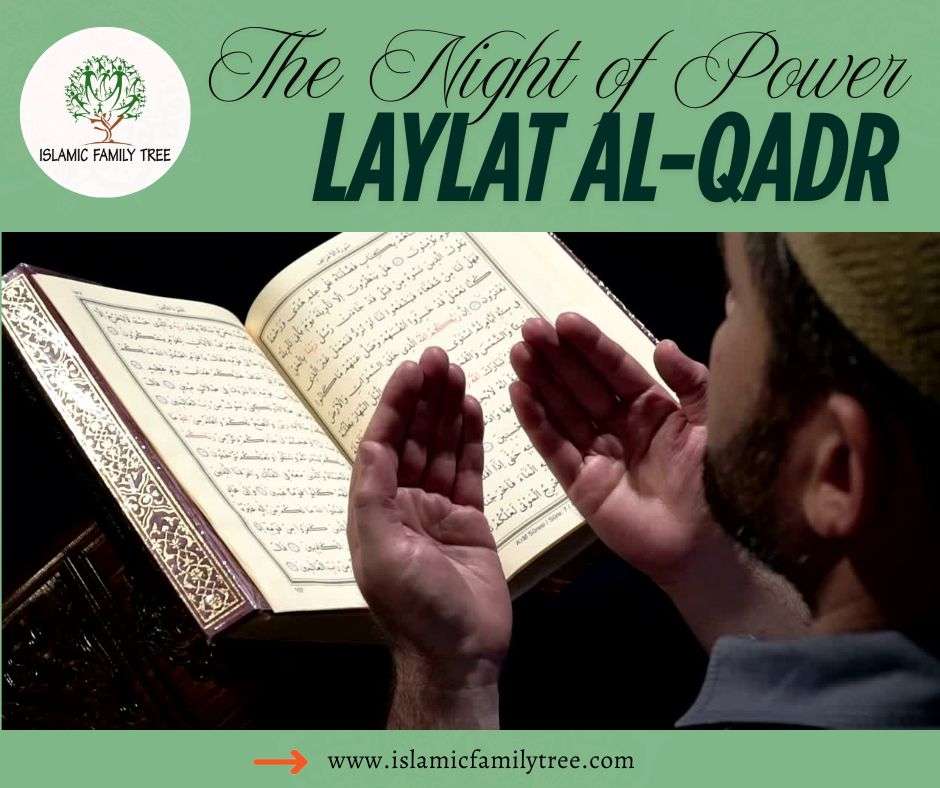
The Night of Power (Laylat al-Qadr) and Its Significance in Islamic Lineage
The Night of Power, or Laylat al-Qadr, is one of the most significant nights in the Islamic calendar. It is the night when Muslims believe that the Quran was first revealed to the Prophet Muhammad (peace be upon him) by the angel Gabriel. This night, mentioned in the Quran, is said to be “better than a thousand months” (Surah Al-Qadr 97:3), making it a time of immense spiritual importance.
Laylat al-Qadr and Its Historical Context
Laylat al-Qadr falls within the last ten nights of Ramadan, specifically on an odd-numbered night, with many traditions pointing to the 27th night. The Prophet Muhammad (peace be upon him) emphasized seeking this night through increased worship, supplication, and devotion.
During this night, angels descend to the earth, and it is believed that the annual decree of each individual is determined. Muslims spend the night in prayer, reciting the Quran, performing dhikr (remembrance of Allah), and making heartfelt du’as for forgiveness and blessings.
The Role of Laylat al-Qadr in Islamic Family Lineage
Understanding one’s Islamic family tree is a key aspect of preserving heritage and strengthening faith. Many families across generations have upheld traditions of seeking Laylat al-Qadr through dedicated acts of worship. Islamic lineage plays an essential role in transmitting knowledge of faith, traditions, and values, including the importance of this sacred night.
Family Traditions on Laylat al-Qadr
- Gathering for Quran Recitation – Families often come together to read and reflect on the Quran.
- Making Du’a for Generations – Parents and elders pray for the well-being of their descendants, linking past, present, and future generations in faith.
- Charity and Good Deeds – Giving sadaqah (charity) in honor of ancestors is a common practice, ensuring their legacy continues through good actions.
- I’tikaf (Spiritual Retreat) – Some family members dedicate themselves to seclusion in the mosque during the last ten nights of Ramadan to seek this blessed night.
The Importance of Preserving Family Heritage
Islamic family trees help trace one’s lineage back to notable ancestors, including scholars, righteous individuals, and even the Prophet Muhammad (peace be upon him) in some cases. Understanding this heritage deepens one’s connection to Islamic history and encourages a stronger faith commitment, especially on nights like Laylat al-Qadr.
A well-documented Islamic family tree provides insight into religious and historical backgrounds, ensuring that the values, knowledge, and wisdom of previous generations continue to guide future ones.
Conclusion
Laylat al-Qadr is a night of divine blessings, and its connection to Islamic lineage highlights the importance of faith and family traditions. By recognizing our roots and maintaining the practices of our ancestors, we ensure that the sacredness of this night is honored and passed down to future generations.
This Ramadan, as we seek the Night of Power, let us also reflect on the legacy of our families and the role we play in preserving our Islamic heritage.


